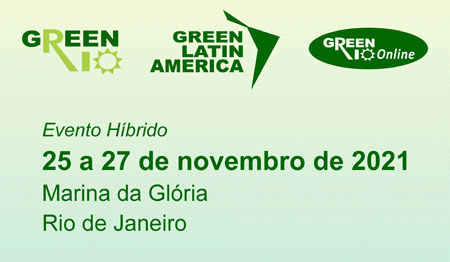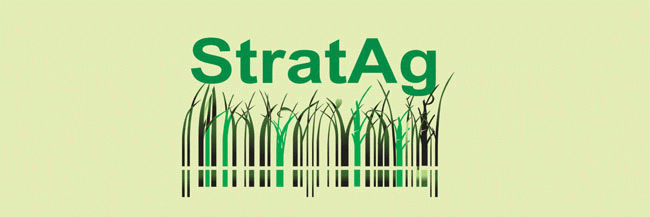
The Rio Rural Programme promotes sustainable development in rural areas of the State of Rio de Janeiro, Brazil, with the objective of empowering family farmers, raising awareness about environmental issues and promoting their social and productive inclusion, so they can act as main partners in the sustainable management of natural resources and eco-friendly agriculture. The programme is implemented by the State Secretariat of Agriculture and Livestock of Rio de Janeiro, with funding from GEF (2006-2011), the World Bank (2010-2018), federal and stage programmers and private sector. Rio Rural integrates income generation, food security and good governance strategies with support adoption of sustainable management practices that can provide environmental services: soil conservation and water protection, carbon sequestration and biodiversity conservation.
In 2006, with US$14 million funding from GEF and RJ Gov, project kick off actions in 48 microwatersheds in 24 municipalities within the North and Northwest regions of the State, supporting 4,000 small householders to adopt a sustainable and integrated management of ecosystems and landscapes into their productive systems.
The main challenge was to improve rural livelihoods and income through adoption of sustainable natural resources management and conservation practices integrated to agricultural and non agricultural systems thus raising productivity while promoting biodiversity conservation, climate change mitigation and reversing land degradation in the most critically endangered remaining areas of the Atlantic Forest biome in the state of Rio de Janeiro. To achieve this objective it was necessary to engage small farming communities to adopt sustainable production systems, avoiding soil depletion and protecting water resources. Rio Rural GEF Project provided environmentally-sustainable economic opportunities for rural communities, in a total area of 17,220 ha.
Based on good results of the GEF pilot phase, in 2010 a loan of US$79 million was approved by the World Bank to upscale Rio Rural actions to 59 municipalities and 200 microwatersheds, benefiting 30,000 families (about 30% of rural population of Rio de Janeiro). Scaling up is now ongoing to 366 micro-watersheds in 72 municipalities with an additional financing of US$140 million to extending its benefits to almost 80% of the state and introducing an approach focused on sustainable management of landscapes and acceleration of competitiveness, in order to facilitate access of small farmers to markets.
The project will benefit 78,000 farmers, 47.000 with direct financial incentives and technical assistance to improve productivity. In return farmers agree to implement conservation and restoration practices in their lands, contributing to sustainability of the Atlantic Forest biome. The farmers are increasingly adopting practices such as reforestation, spring protection, recovery of riparian vegetation and protection of water recharge areas, sanitation, road rehabilitation, green and organic manure, among other actions with direct impact on natural resources. Besides direct incentives for sustainable production techniques, rural communities will benefit from conservation practices on 44,889 km of rivers and streams, conservation of 6,000 km feeder roads, rural sanitation and training. Programme´s actions will cover 2.5 million hectares, about 95 % of total agricultural land in the state.
All activities and projects are discussed within the community active participation and set out in the local watershed plan. The own farming families find out their priorities and establish how to take action in order to change local problems, while Rio Rural provide technical framework and encourage local actors to raise funds directly.
Large entrepreneurship projects in the state and the increasing demand for food also provoke deep economic changes, social and environmental , bringing new opportunities for agriculture. The sector faces the challenge of increasing its competitiveness, producing diversified healthy food to a increasingly demanding market, using low environmental impact technologies.
On the other hand, as farmers provide environmental services to whole society, they should be compensated or supported with public and private funds to ensure long-term provision of these services. Rio Rural joins efforts to enhance financial sustainability of ES supporting farmers with technical assistance, capacity building and adaptation of adequate technological solutions to local conditions. It involves direct incentives on farming sustainability and ES provision, identification of new opportunities arising from private investments, and integration with multisectoral public policies.
Innovations of Rio Rural Program
Clean Development Mechanism (CDM) and Fundraising
Rio Rural extends opportunities of public and private investments in environmental projects, as well as supporting projects for the family farming. Carbon sequestration from the atmosphere and restoration of biodiversity turns micro-watersheds methodology a great potential for social and environmental investors.
In addition, Rio Rural is collaborating with FAO in the development of the Ex-ante Appraisal Carbon-balance Tool (EX-ACT), which will enable calculation of CO2 volume reduction in the atmosphere resulting from sustainable farming practices. It therefore contributes to diminishing greenhouse effect gases and establishes an important role to family farming in the global warming mitigation efforts.
Integration with Watersheds Committees
The micro-watersheds methodology provides a local approach for planning sustainable rural development and conservation of water resources, complementing and enhancing the performance of the Watersheds Committees. The Executive Plans of Micro-watersheds, drawn up with the community participation, contribute to involve local actors in the policies implemented in the Watersheds level, which cover a bigger geographical area.
Biodiversity Conservation with a territorial approach
One of the main innovations of the micro-watersheds methodology developed by Rio Rural is conservation of biodiversity of the Atlantic Forest. The Program carries out unprecedented participatory surveys on vegetation and animal diversity in the territories where the micro-watersheds are located. It also promotes native forest restoration by protection of springs and streams and agroforestry while improving awareness through environmental education and capacity-building.
Community Self-management and Governance
All actions of Rio Rural Program involve family farmers and other residents of the micro-watersheds. For covering smaller areas, a micro-watersheds’ approach allows local level monitoring and decision-taking (local governance). The objective is to mobilize each community from the planning phase to the evaluation of results.
Through the Physical and Financial System, a tool for public transparency, everyone can monitor the Program’s investments for the sustainable rural development in micro-watersheds.
Micro-watersheds Simulator
An interactive virtual tool which simulates management of the micro-watersheds, projecting the effects of land use and management of natural resources, also demonstrating positive impacts of good agricultural practices on the environment. Family farmers, professionals and students can virtually experience sustainable planting, rotational grazing systems, reforestation areas, agroforestry systems, water source protection, among other practices.
Community Code of Conduct
Engaging and compromising each community for the sustainable use of the natural resources is a major aspect to the success of Rio Rural Program. For this reason, family farmers and other residents of the micro-watersheds are encouraged and trained to draw together the Community Code of Conduct in a participatory process, establishing the sustainable practices and behavior that must be adopted by the whole community to ensure natural resources sustainable management. The statutes aim to reconcile the effective conservation of the environment with the need of rural households to use the land and the natural resources for their livelihoods.
Integration of multisectoral public policies
Rio Rural joins forces with organizations of the public sector to incorporate services and rural policies to the micro-watershed communities, benefiting its residents. The Program maintains partnerships with local, state and federal governments, seeking to establish joint strategies and co-finance rural development activities.
Contact:
Nelson Teixeira – Sustainable Development Superintendent
Helga Hissa – Technical Coordinator
Secretariat of Agriculture and Livestock of Rio de Janeiro
+55 (21) 3607-6003 / 3607-5398
microbacias@agricultura.rj.gov.br
___________________________________________________________________________________________________________________




